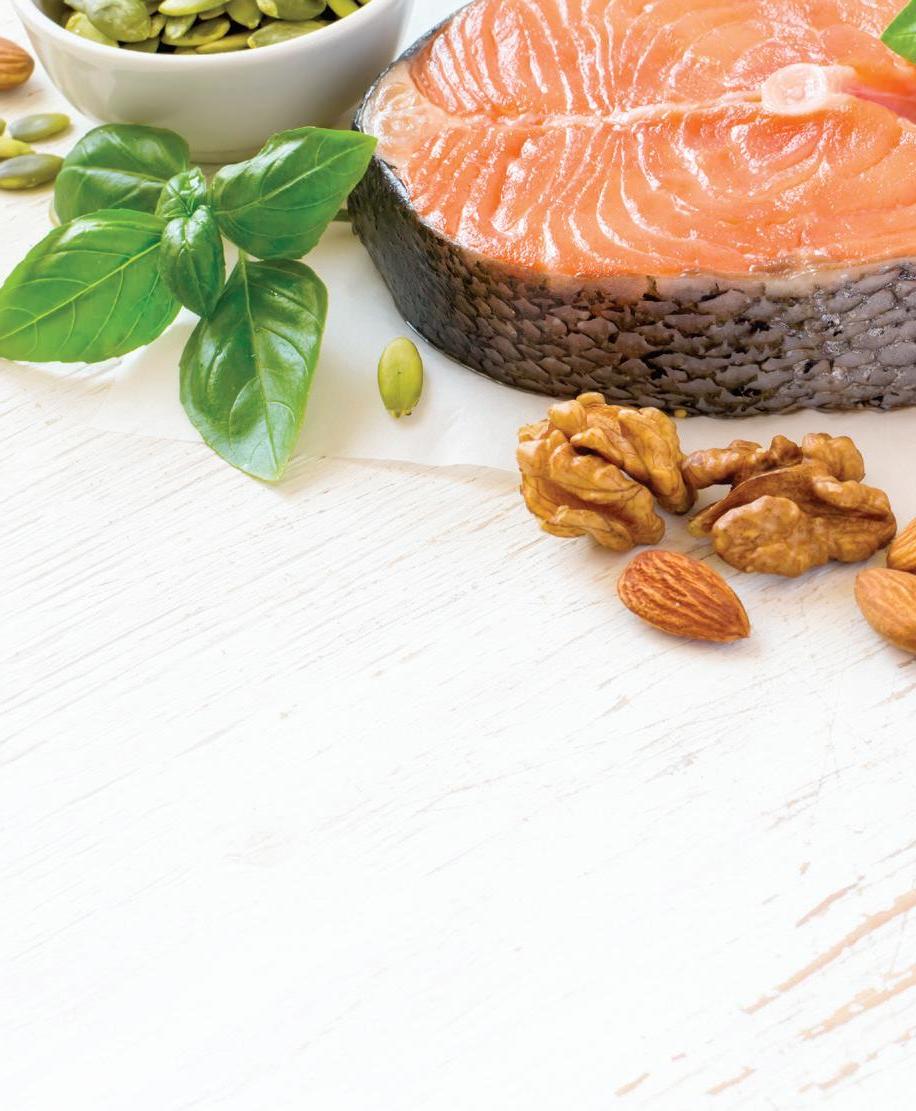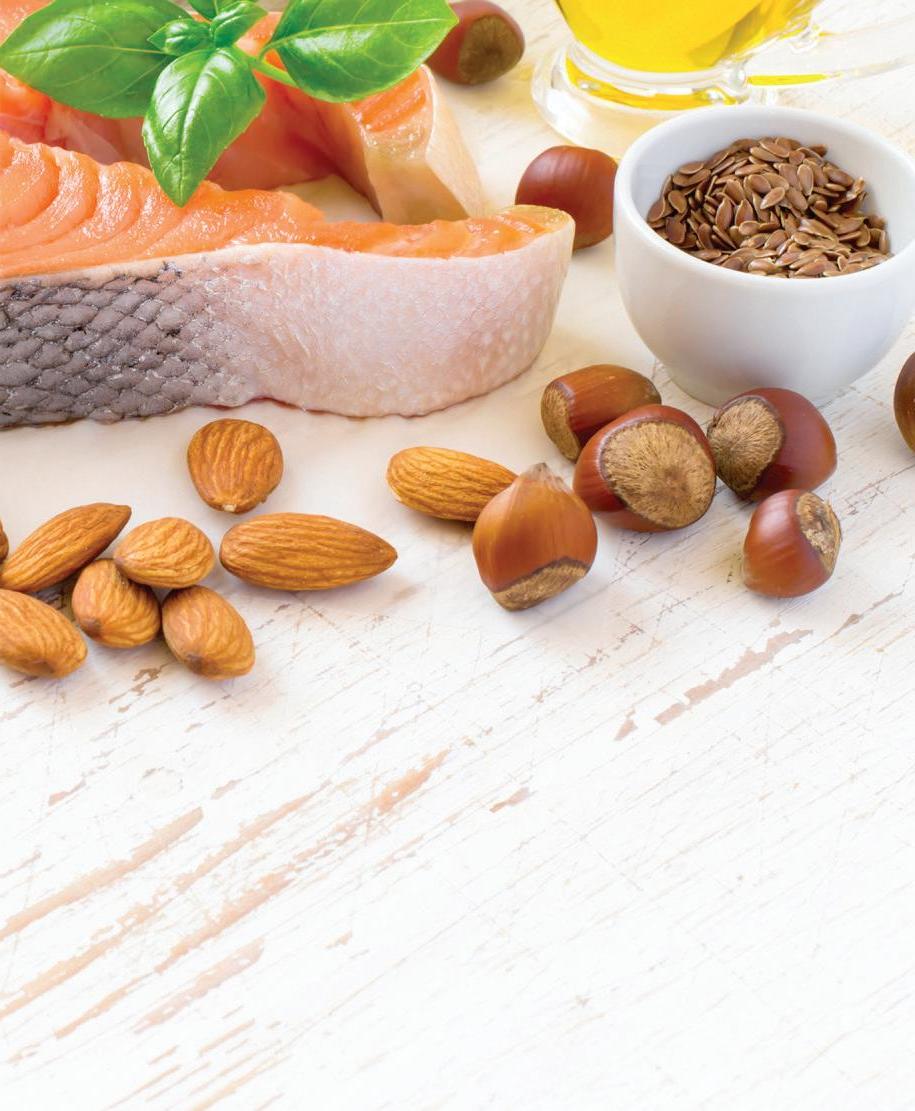
2 minute read
Know & Love your Healthy Fats
by ROX Media
Know your Healthy Fats & Love
Many of us have learned by now that fats are a very broad nutritional category, and different types of fats have different effects on our bodies. But we do know we need some fat in our diet so our bodies can perform such important processes as:
*Building cells.
*Storing energy to fuel our bodies. *Protecting our inner organs.
*Maintaining our body temperature.
*Helping us absorb vitamins from food.
*Secreting important hormones.
Let’s start out with the dietary sources of healthy fats for our bodies.
Good Fats
UNSATURATED FATS
All beneficial fats fall into this category, so called because their molecules are not “saturated” with hydrogen molecules as saturated fats are. Experts recommend you eat these instead of other types of fat.
Studies have shown their consumption leads to lower cholesterol, reduced inflammation, stable heart rhythm and other benefits.
They are further broken down into monounsaturated and polyunsaturated fats, also named for their molecular structure. Both types are considered healthy and serve similar functions in the body.
Foods rich in
monounsaturated fats include avocados, olives, nuts including hazelnuts, almonds and pecans, peanut and other nut butters, sesame and pumpkin seeds and cooking oils derived from plant sources including olive, sesame, safflower, sunflower and canola oil.
You can find high levels of polyunsaturated fats in flaxseeds, walnuts, pine nuts, fish and in sunflower, flaxseed, soybean and corn oils.
Omega-3 fatty acids are a type of polyunsaturated fats essential to human functions and cannot be produced by our bodies. Salmon, tuna and oily fish like mackerel are among the best sources, as are chia seeds, flaxseeds, walnuts, soy and oils extracted from the latter three.

Bad Fats
For decades, research has linked saturated fat and increased LDL or “bad” cholesterol levels; believed to lead to heart disease and blockages in the heart and elsewhere in the body. It’s found in red meats like beef, as well as pork, cheese, full-fat dairy products, ice cream and many baked goods. However, a 2010 metaanalysis of cohort studies looking at the relationship between saturated fats and heart disease found no causal link and other studies have yielded conflicting results, but many experts are still advising caution.
Trans fats, usually added to processed food as hydrogenated oil, have no known redeeming qualities. These have been found to raise your “bad” cholesterol at the same time lowering “good” cholesterol, cause inflammation and contribute to insulin resistance.
Artificial trans fats were banned by the U.S. Food and Drug Administration in 2018 at levels above 0.5 grams per serving. They can still be found in some brands of vegetable shortening and oils, frozen pizza, microwave popcorn, nondairy creamer and other products.
How much of each? The U.S. Department of Agriculture’s (USDA) current Dietary Guidelines for Americans recommends consumption of “oils” (healthy fats) as part of a healthy diet. Adults who are consuming a 2,000-calorie diet should have about 27 grams per day for optimum health. Saturated fat should be limited to 10% or less of total calorie intake. See www.dietaryguidelines.gov for more information.










